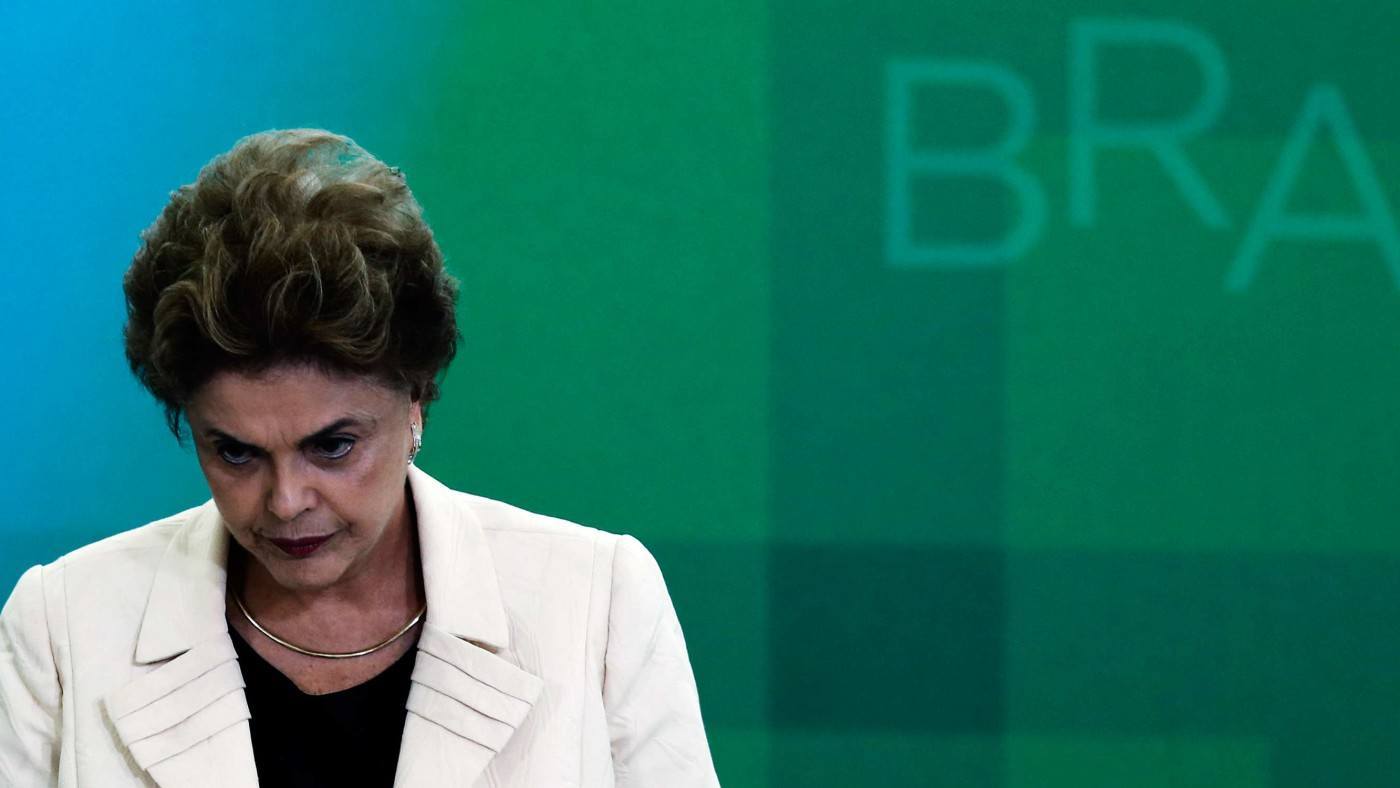Dilma Rousseff has fallen.
After more than 20 hours of debate, Brazilian Senators voted by 55 to 22 to suspend the President. Rousseff now faces a full impeachment trial, which could take up to 180 days, and is unlikely to be reinstated before the Olympic Games begin in Rio de Janeiro in August.
It is fair to say that the rest of the world saw this coming. Impeachment proceedings began in December. Despite a number of Supreme Court appeals, on April 11th the commission launched to investigate charges against her made a formal recommendation to the lower house of Congress that impeachment should go ahead. A week later, the lower house confirmed the decision with a majority of more than two-thirds. There was some drama at the beginning of this week, when the new Speaker temporarily annulled the lower house’s vote, only to change his mind overnight. In a last-ditch effort to prevent the inevitable, Dilma Rousseff appealed to the Supreme Court again to stop the proceedings, but without success. Today, her Workers’ Party is out of power for the first time in 13 years.
The most obvious victor of Dilma’s downfall is the interim President Michel Temer, former Vice President and leader of the Brazilian Democratic Movement Party (PMDB). Though he had been in coalition with the Workers’ Party, at the beginning of April he led a walkout of Rousseff’s government, galvanising the movement against her.
But Temer should watch his step. A Supreme Court judge has already ruled that he too should be investigated for the same charges which have become Rousseff’s undoing, namely manipulating government accounts during the 2014 election to mask Brazil’s growing deficit. The millions of protestors who have been lining the streets of Brasilia, São Paulo and Rio to call for change and transparency are unlikely to be appeased with the replacement of one corrupt President for another.
To confuse the situation further, the man who was third-in-line for the Presidency has also become a victim of Brazil’s corruption purge. Eduardo Cunha, former Speaker of the lower house, was suspended on Friday after being implicated in the Lava Jato (Car Wash) investigation of the state-owned oil company Petrobras. He is accused of taking $1.4 million in bribes. Cunha, a fellow member of Temer’s PMDB, is one of the most unpopular politicians in Brazil, and showed his cards in December when he approved impeachment proceedings against Rousseff but not against Temer, although they filed at the same time.
The impeachment of Dilma Rousseff could be the catalyst Brazil needs to root out corruption, to cleanse the echelons of government of the hundreds of cronyist officials and to restore some semblance of stability to a country wracked by debt and inflation. Or it could signal a spiral into lawlessness and civil unrest. The backlash against the political elite who have turned Brazil’s economy from an emerging giant into a cautionary tale will not end here.
If Michel Temer and his new government think they have escaped the tide of popular anger, they are deluding themselves.


